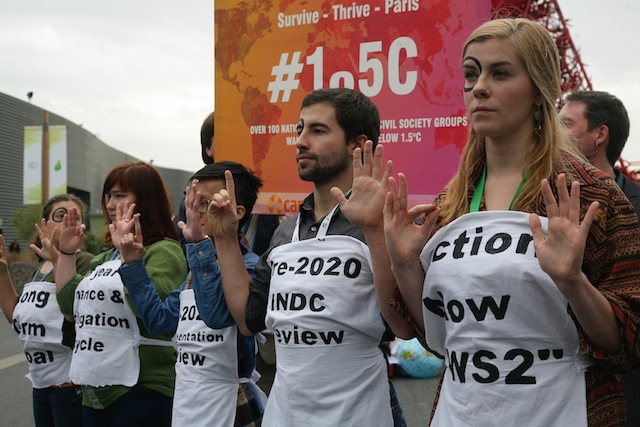By John Leo Algo
Generations of Filipino activists urged governments to strengthen multi-sectoral approaches for solving the climate crisis during the Asia-Pacific Climate Week in Bangkok, Thailand.
Ian Rivera, National Coordinator of the Philippine Movement for Climate Justice, stated in a public forum that governments of developing countries in the Asia-Pacific must take the lead in decarbonizing their economies through a just transition to renewable energy by 2050. While these nations require financial and technological support from industrialized countries, policymakers must also invest in domestic climate change mitigation and adaptation programs instead of being completely dependent on foreign aid.
“In some countries, there’s a bias of governments in prioritizing coal. We need to have a common fight in putting renewables into the grid,” he said.
Rivera, 55, also pointed out that greenhouse gas emissions should have peaked by 2015 to limit global warming up to 1.5°C by 2100. Instead, the business-as-usual attitude of many high-emitting countries has placed the world closer to said warming, whose impacts would be felt more by poorer communities in countries such as the Philippines and Indonesia.
“We are experiencing impacts in relation to water scarcity, food and agriculture, and sea level rise. These impacts, in relation to vulnerable countries, are very extreme,” he added.
The participation of non-government stakeholders is a part of the implementation strategy of many Asia-Pacific countries’ Nationally Determined Contributions (NDCs), whose measures would begin to be formally enacted next year under the Paris Agreement. In this regard, Rivera called for communities to be more active in fighting the crisis on multiple fronts.
Impacted communities and vulnerable groups, including women and the youth, must participate in stopping the expansion of coal-fired power plants and promoting divestments from fossil fuels. He also highlighted the need for cross-border campaigns for resource mobilization and knowledge-sharing, lobbying for stronger environmental legislation, and pushing their governments to raise ambitions from what is stated in their NDCs.
Despite the slow progress of global and regional climate action, Rivera noted that more communities are recognizing and responding to the climate emergency, most notably seen with the climate strikes. “We’re building the movement. We are growing in numbers. We are winning victories,” he said.
The involvement of multiple sectors was also highlighted by 22-year-old Krishna Ariola of the Youth for Climate Hope. She remarked in a plenary session that the role of the youth in climate dialogues and negotiations should not be tokenistic. “We should be able to have a proper say in making decisions because at this point in the climate crisis, we are the biggest and the most affected stakeholders. We need to have a seat on the table,” she said.
Regarding the campaigns against the construction of any coal plants in Negros Island for more than two decades, Ariola also stated that the private sector has not engaged with other groups, including civil society organizations, faith-based organizations, and the academe. She then called for businesses to initiate engagements for collaborative climate-related projects.
“The private sector can invest in youth programs without them directing it. If we have loose terms of reference, then we can empower the youth to self-manage and bring out these creative ideas and fresh perspectives towards climate solutions,” she said.
Instead of merely pointing fingers at who is to really blame for the climate crisis, the problem lies with the overall lack of ambition and imagination, per Ariola. A good narrative for engaging more stakeholders in climate action, especially in developing countries in the Asia-Pacific, would be a collaboration that transcends boundaries and interests.
“When you talk about fears, it is paralyzing, so we act on hope. Hope is not enough, we have to translate that into action and better yet, legislation. And we have to institutionalize multi-sectoral participation,” she said.
John Leo Algo is the Program Manager of the Climate Action for Sustainability Initiative (KASALI)
Latest posts by EnviroNewsph (see all)
- Global fund aimed at protecting nature and accelerate investment in conservation, launched in Canada - August 25, 2023
- Why ‘loss and damage’ is the most bitterly fought-over issue at COP27 climate talks? - November 18, 2022
- U.S. hands over P2.3M in equipment and wildALERT system to PH to protect wildlife - December 16, 2020

